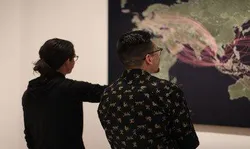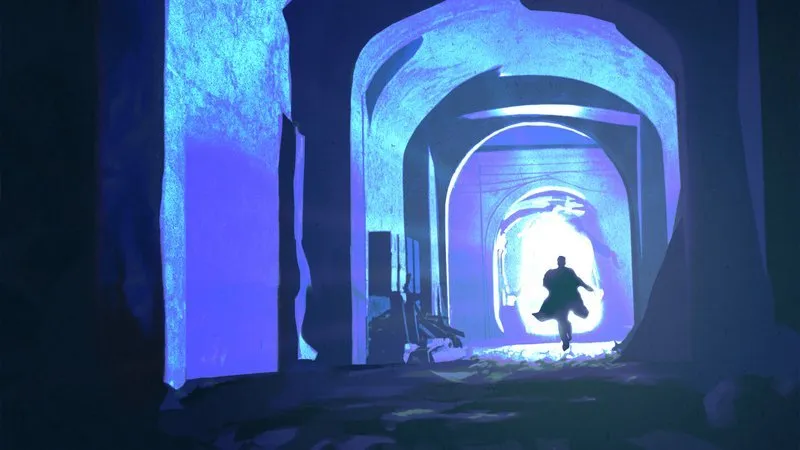
The Smithsonian Summer Sessions: Interrogating the Stories We Tell 
This course offers an opportunity to explore how museum objects and works of art can help broaden perspectives, reveal silenced stories, and make relevant connections to the present. Participants will be guided by museum educators to investigate the connections between collections and modern-day issues. They will also learn how to use these objects to create meaningful conversations. ▼
ADVERTISEMENT
Course Feature
![]() Cost:
Cost:
Free
![]() Provider:
Provider:
Edx
![]() Certificate:
Certificate:
Paid Certification
![]() Language:
Language:
English
![]() Start Date:
Start Date:
Self paced
Course Overview
❗The content presented here is sourced directly from Edx platform. For comprehensive course details, including enrollment information, simply click on the 'Go to class' link on our website.
Updated in [March 06th, 2023]
The Smithsonian Summer Sessions: Interrogating the Stories We Tell is a 14-week teacher professional development course that provides participants with the opportunity to explore how museum objects and works of art can broaden perspectives, reveal silenced stories, and make relevant connections to our world today. Participants will be introduced to the Smithsonian Learning Lab, a free, online platform for accessing digital museum resources and creating interactive learning experiences with them. Through this course, teachers will learn how to teach with museum resources to engage students in deeper thinking and support content learning across disciplines. Participants will also have the chance to reflect on what they have learned and workshop ideas to create a learning experience for their classroom.
[Applications]
Participants of The Smithsonian Summer Sessions: Interrogating the Stories We Tell will be able to apply their knowledge of museum objects and works of art to broaden perspectives, reveal silenced stories, and make relevant connections to the world today. They will be able to use the Smithsonian Learning Lab, a free, online platform for accessing digital museum resources and creating interactive learning experiences, to engage students in deeper thinking and support content learning across disciplines. Additionally, participants will be able to create a learning experience for their classroom based on the ideas they have developed and reflected on during the course.
[Career Paths]
1. Museum Educator: Museum educators are responsible for creating and delivering educational programs and activities for visitors of all ages. They develop and implement educational programs that are designed to engage visitors in the museum’s collections and exhibitions. Museum educators must be knowledgeable about the museum’s collections and exhibitions, and be able to communicate this knowledge to visitors in an engaging and meaningful way. Developing trends in this field include the use of digital technologies to create interactive learning experiences and the use of museum resources to engage students in deeper thinking and support content learning across disciplines.
2. Curator: Curators are responsible for the care and management of museum collections. They are responsible for researching, acquiring, and preserving museum objects and works of art. They also develop and implement exhibitions and educational programs that are designed to engage visitors in the museum’s collections and exhibitions. Developing trends in this field include the use of digital technologies to create interactive learning experiences and the use of museum resources to engage students in deeper thinking and support content learning across disciplines.
3. Museum Administrator: Museum administrators are responsible for the day-to-day operations of a museum. They are responsible for managing the museum’s budget, developing and implementing policies and procedures, and overseeing the museum’s staff. Developing trends in this field include the use of digital technologies to create interactive learning experiences and the use of museum resources to engage students in deeper thinking and support content learning across disciplines.
4. Museum Technician: Museum technicians are responsible for the maintenance and repair of museum objects and works of art. They are responsible for the installation and de-installation of exhibitions, as well as the maintenance and repair of museum equipment. Developing trends in this field include the use of digital technologies to create interactive learning experiences and the use of museum resources to engage students in deeper thinking and support content learning across disciplines.
[Education Paths]
1. Master of Arts in Museum Studies: A Master of Arts in Museum Studies is a degree program that focuses on the history, theory, and practice of museums and museum collections. This degree program provides students with the knowledge and skills needed to work in a museum setting, such as curatorial work, collections management, and educational programming. Developing trends in this field include the use of digital technologies to create interactive learning experiences, as well as the use of museum collections to explore social justice issues.
2. Master of Education in Educational Technology: A Master of Education in Educational Technology is a degree program that focuses on the use of technology to support teaching and learning. This degree program provides students with the knowledge and skills needed to design and implement technology-based learning experiences, such as online courses and virtual field trips. Developing trends in this field include the use of artificial intelligence and machine learning to create personalized learning experiences, as well as the use of virtual reality to create immersive learning environments.
3. Master of Arts in History: A Master of Arts in History is a degree program that focuses on the study of the past. This degree program provides students with the knowledge and skills needed to analyze and interpret historical events and documents. Developing trends in this field include the use of digital technologies to access and analyze historical sources, as well as the use of museum collections to explore the history of marginalized communities.
4. Master of Arts in Art History: A Master of Arts in Art History is a degree program that focuses on the study of art and visual culture. This degree program provides students with the knowledge and skills needed to analyze and interpret works of art and visual culture. Developing trends in this field include the use of digital technologies to access and analyze artworks, as well as the use of museum collections to explore the history of art and visual culture.
Course Provider

Provider Edx's Stats at AZClass
Discussion and Reviews
0.0 (Based on 0 reviews)
Explore Similar Online Courses

Influence

Diploma in Effective Bookkeeping and Payroll

Python for Informatics: Exploring Information

Social Network Analysis

Introduction to Systematic Review and Meta-Analysis

The Analytics Edge

DCO042 - Python For Informatics

Causal Diagrams: Draw Your Assumptions Before Your Conclusions

Whole genome sequencing of bacterial genomes - tools and applications

Visual Storytelling for Film and Video Games

Cinematic Storytelling


Start your review of The Smithsonian Summer Sessions: Interrogating the Stories We Tell